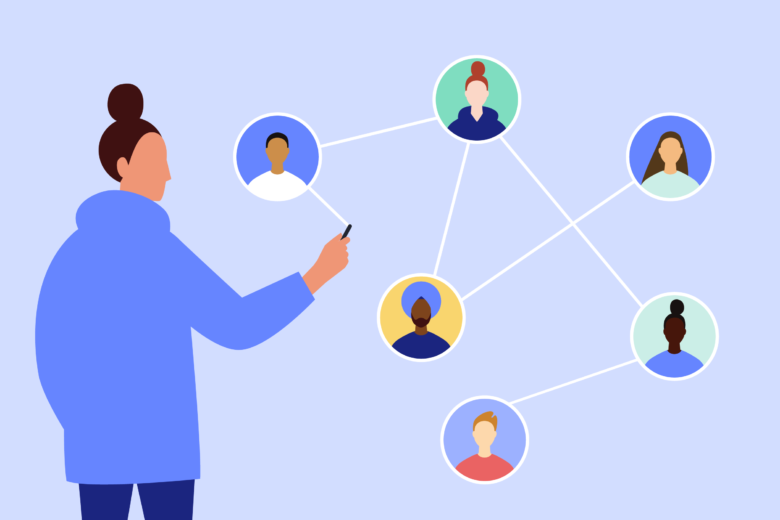Talent and skills alone won’t guarantee success as a freelancer. Networking is one of the most overlooked, yet highly effective, tools for a freelancer. Freelancing can be lonely, but smart networking can lead to repeat clients, new projects, and collaboration opportunities. Whether you’re a new freelancer or an experienced freelancer, building a solid network is key to success in the competitive freelance industry. Networking is about building genuine, mutually beneficial relationships, not just exchanging business cards or LinkedIn contacts. Strategic networking can help freelancers achieve outstanding success with a people-focused, honest, AdSense-enabled, results-driven approach. We explore how freelancers can boost their careers and income by intentionally connecting through online groups and industry events.
Understanding the Importance of Freelance Networking
Freelancers need to network to gain trust, influence, and relevance in their industry. Unlike regular employees, freelancers must constantly network to find new work. Smart networking allows them to stay up-to-date on industry trends, learn from others, and gain access to decision makers. A solid network provides stability in tough times and growth in good times. Freelancing is about building meaningful relationships that lead to collaborations, referrals, and skill development, not just making money. As freelancing becomes more common, those who build real connections will gain visibility, credibility, and long-term success.
Networking for Freelancers: Getting Started
Networking is often unfamiliar to introverts or new freelancers. Fortunately, networking doesn’t have to be stressful. Find your niche and join communities that match your talents and ambitions. LinkedIn, Reddit, Discord, and Facebook groups are excellent places to start. These platforms allow freelancers to share insights, ask questions, create value, and build connections. It’s important to stay connected, help others without expecting anything in return, and let your personality shine. You’ll connect with like-minded professionals who support each other’s success.
Build Meaningful Connections on Social Media
Social media has changed the way freelancers network. Twitter, Instagram, and LinkedIn are excellent for showcasing your work, sharing industry information, and connecting with potential clients. Unlike cold emails or job boards, social media builds rapport and nurtures relationships before business begins. Sharing your approach, participating in relevant discussions, and thoughtfully responding to others’ posts raise your profile and attract potential clients. The smartest freelancers use social media to build connections, not popularity. It’s the quality of connections that counts, not the quantity. Freelancers can naturally gain attention and build professional trust by proactively building their personal brand.
Attend Online and Offline Events
Despite the ease of online networking, offline friendships are still the strongest. Attending conferences, seminars, coworking events, and conventions can boost your freelance career. These events offer unique opportunities to meet potential clients, partners, and mentors. Virtual events and webinars are great for those who can’t travel or prefer to connect remotely. Freelancers often find their best connections through informal chats or follow-up emails during breaks. Attending these events shows that you value your skills and personal growth. Whether online or offline, events can help you stand out in the digital world and build long-lasting relationships.
Personal Branding and Networking
Networking and personal branding are inextricably linked. A strong personal brand makes freelancers more memorable and appealing. Every discussion, article, or introduction is an opportunity to showcase your values and worth. A well-designed website, consistent visual style, and engaging online presence build trust. People will talk about you when you’re not there, so ensure they say what you want. Controlling the narrative and how your work and skills are perceived is a smart way to network. Your credibility, originality, or any other quality that shows your professionalism will make you famous.
Following Up and Staying in Touch
One of the biggest mistakes freelancers make is not following up on an appointment. Networking is about building long-term relationships. Appreciation, informative articles, and regular communication every few months keep relationships going. A CRM or spreadsheet can help you stay organized. Helping people or providing value without expectations will ensure they think of you when opportunities arise. Smart freelancers know that follow-up is key. It’s the short interactions and long-term professional relationships that lead to more business.
From Conversation to Opportunity
Many freelancers struggle to go from casual conversation to actual business without coming across as demanding. The key is to put value first. Ask questions, listen, and find problems you can solve. Once trust is built, present your services as consultative solutions rather than sales pitches. By showing genuine interest and understanding your prospect’s needs, you become a trusted partner rather than a freelancer. Smart and intelligent networking builds trust, likeability, and knowledge, which increases the likelihood that someone will hire a client.
Collaborate with Other Freelancers
Connecting with other freelancers can be just as beneficial as finding clients. Freelancers can establish themselves with larger projects and avoid isolation by collaborating, recommending job opportunities, or sharing insights. These collaborations can lead to agency-like or long-term partnerships that can grow your talent and income. Trust is the foundation for building these partnerships. Honest and professional networking allows freelancers to become allies, not competitors. Smart freelancers know that the freelance ecosystem is vast and there is room for everyone.
Avoid Common Networking Mistakes
Learn the off-limits behaviors for building a successful network. Avoid selling your portfolio or services in every conversation. Think more about what others can do for you. Never underestimate the value of listening. How you make others feel is more important than what you say. Build networking relationships for the long term, not the short term. Not following up, not editing messages, or only reaching out to contacts when you need work can damage your reputation. Long-term freelance success requires sincerity, curiosity, and giving more than you take.
Conclusion
In a competitive, fast-paced economy, smart networking is essential for freelancers. Freelancers can find new clients, partnerships, and growth opportunities beyond traditional marketing by building genuine relationships, participating in communities, and consistently providing value. Whether you’re starting out or growing, smart networking can take your freelance career from unpredictable to successful. Persistence, sincerity, and constantly thinking about how you can help are essential. With the right network, freelancing becomes a community-driven experience full of opportunity and rewards.
FAQs
1. Which online networks are best for freelancers?
LinkedIn, Twitter, Reddit, Discord, and Facebook groups are all platforms for freelancers or specific industries to network.
2. How can introverted freelancers network better?
Online networks can be a great place for introverted freelancers to network at a low intensity. They can gradually gain confidence, make insightful comments, communicate directly, and participate in group conversations.
3. How often should freelancers reach out to contacts?
Depending on the relationship, every 2-3 months is a beneficial opportunity to reach out, offer help, or stay in touch without interrupting the other person.
4. Can freelancers work in the same niche network?
Of course they can. Sharing leads with others in your field can create new opportunities and build a network of freelancers who support each other.
5. How can I network better?
Maintain integrity and values. Building genuine relationships is more important than immediate benefits, and always think about how you can help your network.




